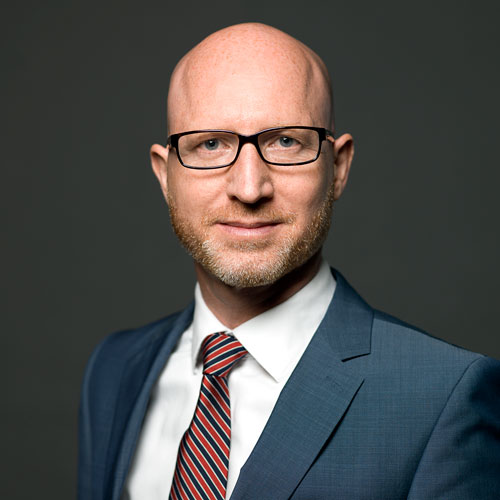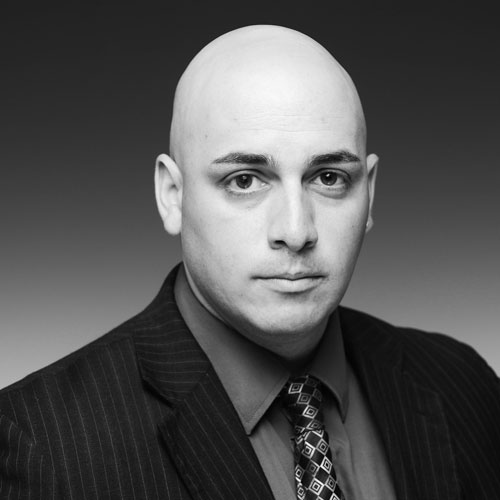Many years ago, when he couldn’t decide what he wanted to do with his life, Victor Hayghe took a union job with Local 30 Operating Engineers at an office complex in Greenwich, Connecticut. It opened his eyes to the field of facilities and real estate, both of which laid the foundation for the path which Hayghe’s would take.
After stints at American Can Company, Genesee Management (shopping malls), and running his own general construction businesses—one in Savannah, Georgia, that specialized in restoring historical houses—Hayghe needed a change. He moved back to New York City and contacted Affinity Health Plan.

“After working in so many other sectors of facilities management and real estate, health care seemed a natural fit,” he says. “But I also liked the services Affinity provided, the feel of the place, and the people. I remember back in 1988 when my son was born. I had no health insurance. At the time, I didn’t know that there were resources out there that could have helped me. Affinity offers tools and resources to help people like that. That’s why I’m so committed to the company.”
Hayghe started at Affinity in 2003 as facilities manager. He is now vice president of facilities and administrative services, responsible for the company’s real estate portfolio and corporate insurance, as well as mailroom and production services, fleet support services, purchasing, and physical security for more than 20 locations.
Affinity Health Plan is approaching its 30th anniversary, a milestone that Hayghe says “gives us the opportunity to recognize the providers who keep our members healthy, celebrate our members for their loyalty and trust, thank the community for its support, and reintroduce prevention and primary care to all of our audiences.” In anticipation of the anniversary, the company has undergone significant rebranding.
“We’ve created a new logo, switched to more vibrant colors, and have started using real people from the community in our advertising,” he says.
$300
new construction costs per sq. ft.
850
square footage of smallest existing store
2,400
square footage of largest existing store
The company has 18 retail stores in five New York boroughs and five surrounding counties. The idea to open these stores—originally called “community service centers”—was hatched in 2003.
“At that time, it was people in silos making the decisions,” Hayghe says, by way of explaining how, in 2013, the company sat down with stakeholders to discuss a redesign. This involved various departments, including communications, data, facilities, and sales, but Affinity Health Plan also involved outside architects and interior designers as well as Cresa Partners in New York and imagine.GO in Florida.
“We did a retail readiness gap analysis, worked on store design and business functions, and created a retail store strategy, which was approved by executive leadership,” he says.
One location showing off the results of all that hard work is on Pitkin Avenue in Brooklyn.
“We had a store there but lost our lease,” Hayghe explains. “Though we regularly sent a mobile RV, the community really wanted another full-time store.”
So Affinity Health Plan found a building and renovated it from top to bottom.

“The new look is a customer-friendly design that really stands out from nearby businesses,” Hayghe says. “The space is approximately 1,800 square feet with an all-glass storefront that draws people in. There are digital display monitors, round tables so families can sit together, and meeting rooms with etched glass for privacy. We’ve received rave reviews from members and prospective members.”
The Pitkin Avenue location is a true community center, offering an array of services. Members can do everything from replace a lost ID card to find a provider. Prospective members can compare options and either self-enroll in a plan or get enrollment assistance. Customers also can sign up for food stamps and use touch screen computers to get assistance with unemployment benefits or look for work. “Some providers do health screenings at our retail stores and we hold community events,” Hayghe adds.
It might seem like a long way from his days with Local 30 Operating Engineers, but Hayghe says all the experience gained in the time since prepared him for his work with Affinity Health Plan, which he’s excited to see continue.
“As we continue to expand, we can help even more people in New York City and the counties we serve,” he says.
Site Selection
Affinity Health Plan has done very well in picking locations for its stores, and Victor Hayghe says that’s a matter of extensive research, and not just relying on luck.
“We pull local statistics, map by membership/potential membership, and check out local transportation, the retail environment, and proximity to hospitals and providers in our network,” he says. “We really can pinpoint ideal locations.”
Whenever possible, the company tries to find “vanilla boxes” (buildings requiring only paint, carpeting, and furniture), but Hayghe says those are hard to come by.
“I’ve done two in 12 years,” he says. “It’s more common for us to do a gut job, replacing the roof, the electrical, the HVAC.”


